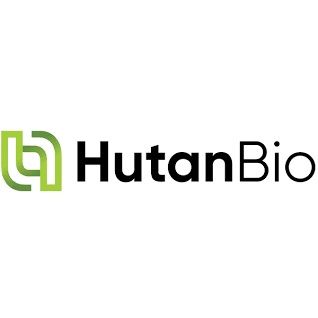HutanBio's microalgal biofuel production shown to be net-negative in an independent life cycle assessment by EcoAct

May 9, 2025
BY HutanBio
HutanBio, a pioneering U.K.-based climate technology company, on May 8 announced that the production process for its proprietary HBx microalgal biofuel achieves net-negative carbon emissions, based on an independent cradle-to-gate life cycle assessment (LCA) conducted by EcoAct, a leading international sustainability consultancy and a wholly owned subsidiary of Schneider Electric Sustainability Business. The assessment offers robust third-party validation of HBx’s carbon removal potential and adds new momentum to the development of credible low-carbon fuel solutions.
HutanBio’s proprietary microalgal system naturally captures and sequesters carbon, achieving a net uptake of -5.78 tCO₂e per tonne of HBx produced. The LCA found that HBx production removes up to 1.48 tonnes of CO₂e per tonne of biofuel produced across all three planned production sites: Morocco, the Middle East, and Western Australia. The LCA addressed all production stages - including raw material inputs, inbound transport, production and refinery processes, and waste handling, offering a transparent carbon accounting methodology rarely seen in the biofuels sector. While downstream use-phase emissions are not included in the system boundary, the results clearly show that the production process alone contributes a net-negative carbon impact. The assessment was conducted in alignment with ISO 14040:2006 and ISO 14044:2020, providing robust independent analysis of HutanBio’s technology and methodology.
HBx is derived from a newly discovered marine microalgae cultivated in seawater on non-arable land using HutanBio’s proprietary enclosed photobioreactor technology. It does not compete with food crops or freshwater resources and is designed to power hard-to-abate transport sectors.
"The biofuels industry has long struggled with inconsistent reporting and opaque sustainability claims," said Paul Beastall, CEO of HutanBio. "By following ISO standards and publishing these results, we are not only validating our own process but helping to set a new benchmark for industry transparency. These results mark a significant milestone in the development of science-backed, scalable low-carbon alternatives to fossil fuels."
Advertisement
Among the three regions assessed, Morocco delivered the lowest emissions due to favourable sourcing, energy availability, and shorter logistics chains. The study also found that switching to renewable electricity in HBx production can reduce production emissions by up to 5.6 times compared to fossil-based energy.
"Many producers focus solely on the theoretical carbon benefits of their fuel while obscuring the significant emissions from their production processes," said James Ibberson, chief technical officer at HutanBio. "Our approach is to measure everything, optimise what we can, and be completely transparent about the results."
"The LCA is the gold standard for quantifying environmental impact across a product’s journey," added Stuart Lemmon, CEO of EcoAct and global head of practices, sustainability, at Schneider Electric Sustainability Business. "What sets HutanBio apart is not just their willingness to undergo this rigorous process, but the remarkable results achieved. Their net-negative carbon profile represents exactly the kind of breakthrough innovation needed in hard-to-abate sectors. By embracing this level of scientific scrutiny and transparency, HutanBio is establishing a new benchmark for the entire biofuels industry to aspire to."
Advertisement
HutanBio plans to begin construction of a commercial pilot facility in Q1 2026 and is actively seeking strategic partnerships with transportation leaders and investors committed to climate action.
Related Stories
U.S. fuel ethanol capacity fell slightly in April, while biodiesel and renewable diesel capacity held steady, according to data released by the U.S. EIA on June 30. Feedstock consumption was down when compared to the previous month.
XCF Global Inc. on July 8 provided a production update on its flagship New Rise Reno facility, underscoring that the plant has successfully produced SAF, renewable diesel, and renewable naphtha during its initial ramp-up.
The U.S. EPA on July 8 hosted virtual public hearing to gather input on the agency’s recently released proposed rule to set 2026 and 2027 RFS RVOs. Members of the biofuel industry were among those to offer testimony during the event.
The USDA’s Risk Management Agency is implementing multiple changes to the Camelina pilot insurance program for the 2026 and succeeding crop years. The changes will expand coverage options and provide greater flexibility for producers.
EcoCeres Inc. has signed a multi-year agreement to supply British Airways with sustainable aviation fuel (SAF). The fuel will be produced from 100% waste-based biomass feedstock, such as used cooking oil (UCO).
Upcoming Events










